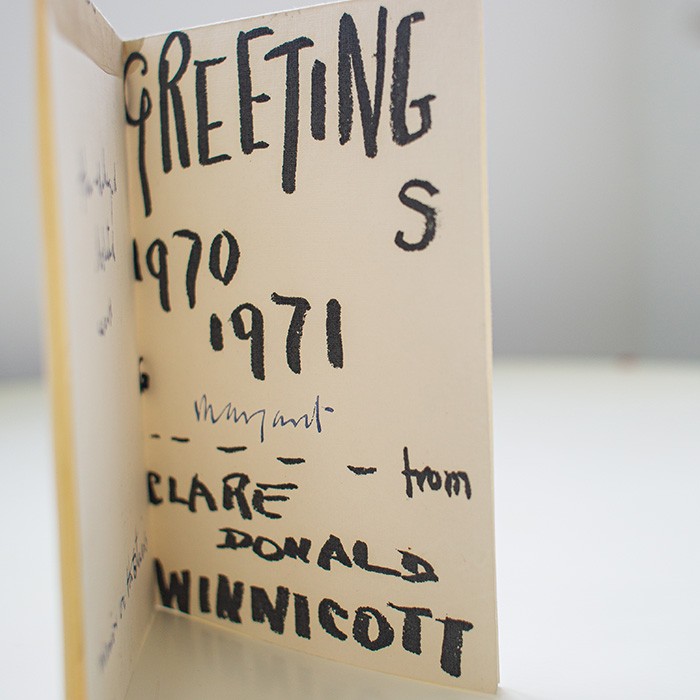President and Past Presidents
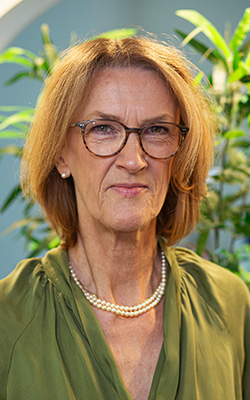
Elizabeth Coates Thümmel
Elizabeth Coates Thümmel is a Training Analyst and Supervisor of the British Psychoanalytic Society. She works in private practice in east London.
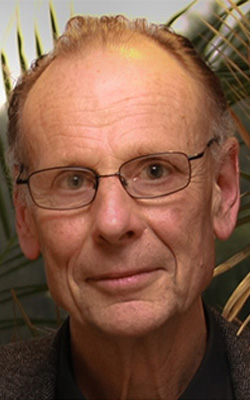
Vic Sedlak
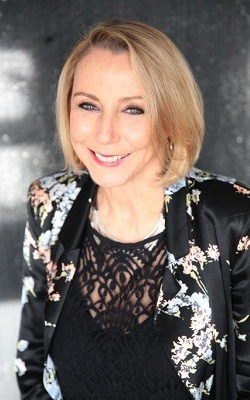
Prof Rosine Perelberg
Coming to psychoanalytic training in the 1980’s from an academic background in social anthropology, as well as many years’ experience working in family therapy services, Rosine Jozef Perelberg has established herself over the last three decades as one of the most prominent and influential writers and clinicians in contemporary British psychoanalysis. She is the former President of the British Psychoanalytical Society. Perelberg has written and edited 12 books, the latest being Sexuality, Excess and Representation, and for the editing of Psychic Bisexuality – a British-French Dialogue, she received the American Board and Academy of Psychoanalysis 2019 book prize for the best edited book. She has served on many editorial boards including the International Journal of Psychoanalysis.
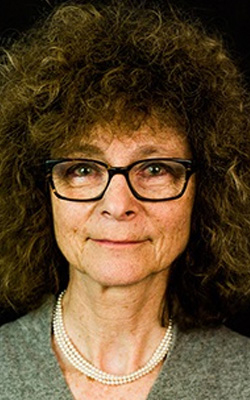
Dr Catalina Bronstein
Catalina Bronstein is a Training and Supervising Analyst of the British Psychoanalytical Society. She is also a visiting Professor in the Psychoanalysis Unit at University College London. For the past twenty-five years she has worked at the Brent Centre for Young People, and chairs a psychotherapy workshop there. She is also part of numerous international workshops and committees.
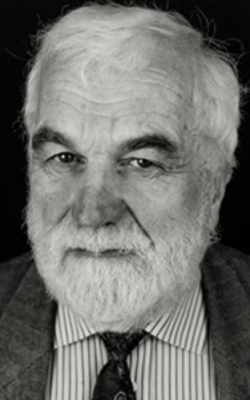
Dr Nicholas Temple
Lorem ipsum dolor sit amet, consectetur adipisci elit, sed eiusmod tempor incidunt ut labore et dolore magna aliqua. Ut enim ad minim veniam, quis nostrum exercitationem ullam corporis suscipit laboriosam, nisi ut aliquid ex ea commodi consequatur. Quis aute iure reprehenderit in voluptate velit esse cillum dolore eu fugiat nulla pariatur. Excepteur sint obcaecat cupiditat non proident, sunt in culpa qui officia deserunt mollit anim id est laborum.
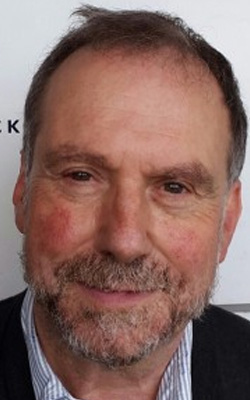
Dr David Bell
David Bell (born 1950) has made contributions to psychoanalysis which combine depth and range. In demand internationally as a speaker and teacher, he lectures and publishes on psychoanalytic theory and technique and on the relationship between psychoanalysis and literature, philosophy and politics.
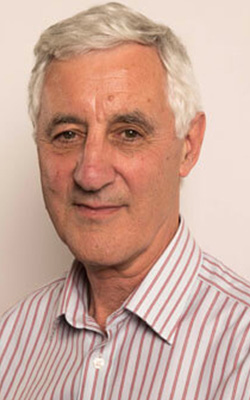
Mr Michael Brearley
Michael Brearley is a Distinguished Fellow of the British Psychoanalytical Society. He has been in private practice in London for 40 years whilst also an active lecturer in a number of fields and especially in the Application of Psychoanalysis.
Previously a Lecturer in Philosophy at the University of Newcastle-upon-Tyne for three years, Mike was a professional cricketer who captained Cambridge University, captained Middlesex for twelve years, and between 1977 and 1981 captained England. Since retiring he has been President of MCC (the governing body of English cricket) and Chair of their World Cricket Committee.
His experience as a psychoanalyst and of working in a psychotherapy unit in London, as well as a school counsellor, and as a consultant to companies has informed his numerous papers on psychoanalysis as well as journalism on sport and especially its psychology. Since retiring from cricket, amongst his published books are: The Art of Captaincy (1985), On Form, and, in 2023, Turning over the Pebbles: a Life in Cricket and in the Mind.
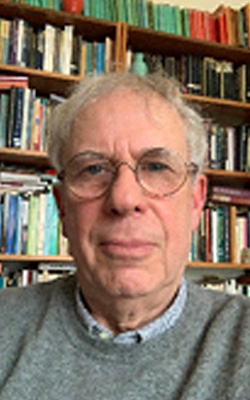
Dr Roger Kennedy
Roger Kennedy is a Consultant Child and Adolescent Psychiatrist as well as a training and supervising adult psychoanalyst, He was an NHS consultant in charge of the Family Unit at the Cassel Hospital for nearly 30 years before going into private practice from 2011. In addition to adult analytic work, he is a recognised expert in the family justice system, providing consultation and mentoring and regularly provides expert opinion in the family courts. During his time as President of the BPAS he introduced video conferencing and set in motion a conference on psychoanalysis at the Science Museum.
He has written many papers on psychoanalysis, interdisciplinary studies, and child, family and court work; and has had 15 books published on psychoanalysis, including The Elusive Human Subject (1998), The Psychic Home (2014), The Power of Music (2020) and The Evil Imagination (2023).
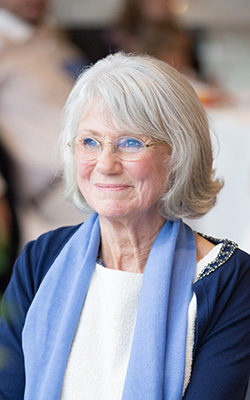
Ms Julia Fabricius
Julia Fabricius had a first career as a senior clinical nurse before reading Psychology at UCL and training as a Psychoanalyst and then as a Child and Adolescent Psychoanalyst. She has been in private practice since 1990 and a Training and Supervising Psychoanalyst since 2000. She has written a number of papers about psychoanalytic views of Nurses and Nursing. She was Director of the Anna Freud Centre between 1996 and 2002 and since then worked full time in private practice.
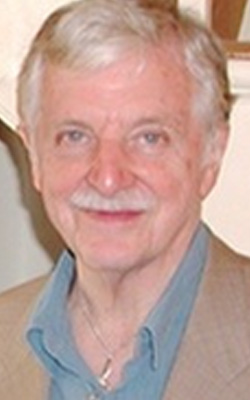
Dr Ron Britton
Ron Britton was a training and supervising analyst with the British Psychoanalytical Society. He first trained as a doctor, and as a child psychiatrist was Chair of the Department of Children and Parents at the Tavistock Clinic. His work was characterised by his preoccupation with truth; with what is real, and how we know this. His answers follows Keats, ‘nothing ever becomes real till it is experienced’ and his contributions to psychoanalysis followed on from this.
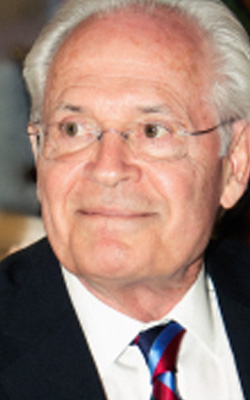
Mr Donald Campbell
Donald Campbell is a training and supervising analyst and Distinguished Fellow of the British Psychoanalytical Society (BPAS). He was President of the BPAS from 1999 to 2003, and Secretary General of the IPA from 2003 to 2005. Alongside his private practice, a major element in his career has been the 30 years of work as a child, adolescent and adult psychoanalytic psychotherapist at the Portman Clinic in London, a National Health Service outpatient facility where he served as Chairman between 1991 and 1994. He has taught, supervised and given papers in over 50 cities in Europe, Australia and the United States. His 60 journal articles and book chapters have enquired into such subjects as violent behaviour in adolescents and adults, aggression, delinquency, the role of the father in pre-suicidal states of mind, fetishism, splitting of the ego, child sexual abuse, adolescent development, doubt, perversion, and horror film monsters.
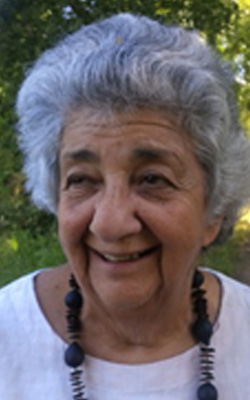
Mrs Irma Brenman-Pick
Irma Brenman Pick was a Distinguished Fellow, Supervising and Training Analyst and former President of the British Psychoanalytical Society. She was born and raised in South Africa, coming from an uneducated background but travelled to London in 1955 to train as a child psychotherapist and then in 1960 as a psychoanalyst. Brenman Pick was known among her colleagues as a psychoanalyst with a fine clinical intuition, coupled with a distinctive, lively and clear way of formulating from material, and for engaging with patients in a deep, multi-layered and nuanced way. she stressed the need for the analyst not only to receive projections, but also to do her own internal psychic work, and to consider how such projections from the patient interact with the analyst’s own internal world.
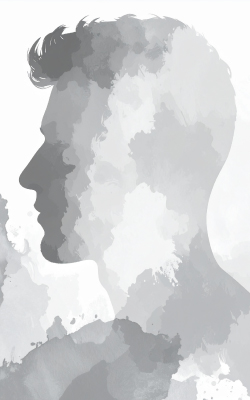
Dr Brendan MacCarthy
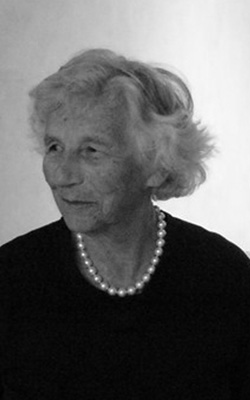
Mrs Anne-Marie Sandler
Anne-Marie Sandler 1925-2018) was a training analyst in adult, adolescent and child analysis and a Distinguished Fellow at the British Psychoanalytical Society. She was the Director of the Anna Freud Centre from 1993 to 1996. She was also a former President of the British Psychoanalytical Society (1990 – 1993), and of the European Psychoanalytic Federation (1983 – 1987) as well as Vice-President of the International Psychoanalytical Association (1993 – 1997). In 1998 she was awarded the prestigious Sigourney Prize for Outstanding Achievement in Psychoanalysis.
Anne-Marie published a number of seminal papers with Joseph Sandler in which they reviewed basic psychoanalytic concepts. She had a unique capacity to establish bridges between people and traditions, and she has been an influential teacher and supervisor. With her compassion for her patients, her sharp intellect, and her clarity of thinking, she was one of the most popular supervisors for the training and fellowship of the British Psychoanalytical Society.
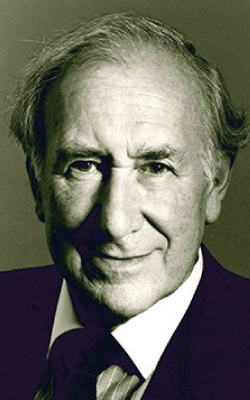
Dr Eric Brenman
Eric Brenman was an astute and compassionate clinician, who stressed the need to acknowledge the reciprocity of the analytical relationship, so that both analyst and patient can recognise the value they have for one another. He explored the internal and external forces that can interfere, both in the analyst and in the patient, with a stable internalisation of a good object. The recovery of the good object relationship, which follows the working through of the depressive position, is the central task of every analysis.
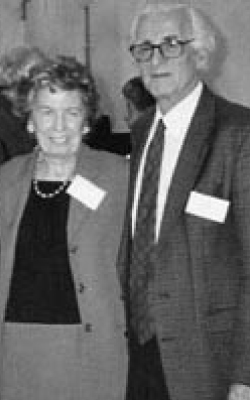
Mr Moses Laufer
Moses Laufer (1928-2006) was born in Montreal to parents who had emigrated to Canada from Poland. Having trained as a social worker, he worked in Israel with immigrants struggling to adapt to the new culture in which they found themselves. From Israel he came to England to train as an adult psycho analyst, working with adolescents in the East End while he trained. Moe Laufer cared passionately about adolescents and concerned himself with finding ways in which to apply and develop psychoanalytic understanding of the adolescent process. This eventually led to establishing the Brent Adolescent Centre in 1967 which continues to this day. Moe Laufer’s great contribution to psychoanalytic theory derives from the study of adolescent development. According to his analysis, the fundamental task of adolescence is the integration of the adult sexual body with all other difficulties, with study, work, separation from home, deriving from problems in integrating the changing body. He published widely with his views most thoroughly explicated in Adolescence and Developmental Breakdown (1984) coauthored with his wife Egle Laufer.
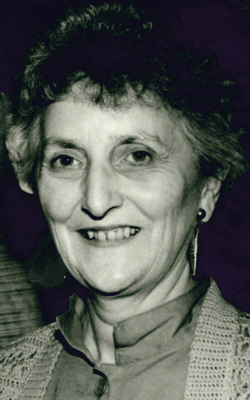
Ms Pearl King
Ken Robinson (psychoanalyst) wrote
Pearl King (1918- 1915) was renowned for her capacity to challenge received assumptions in order to free individuals and institutions from conflict and the dead hand of the past.
She enabled patients, trainees and institutions to explore and change patterns of thinking, feeling and behaving in which they were unwittingly trapped and which they were repeating at a cost to themselves and others. Trained in the aftermath of internecine conflict between followers of Anna Freud and Melanie Klein that had threatened to tear British psychoanalysis apart, Pearl became a key figure in the independent group in the British Psychoanalytical Society (BPAS) that held it together. She owed allegiance to neither of the arguing factions, moving easily across different schools of theory.
The world of psychoanalysis was to benefit from her interest in institutional dynamics. By the time she became a training analyst in 1955, she was already known as someone who could play a significant organisational role in psychoanalysis, at home and internationally. She went on to hold many offices, among them secretary of the BPAS (1956-58), honorary secretary of the International Psychoanalytical Association (1957-61), and deputy president of the BPAS (1964-66). In 1982 she became the first president of the BPAS not to have been trained as a doctor, and she retired in 1984 to become its honorary archivist. She remained in that role until 1994, mobilising a group of colleagues and helpers to establish the archives as essential for researchers of the history of psychoanalysis.
Direct copy of obituary by Ken Robinson written in the Guardian Newspaper Thu 5 Feb 2015
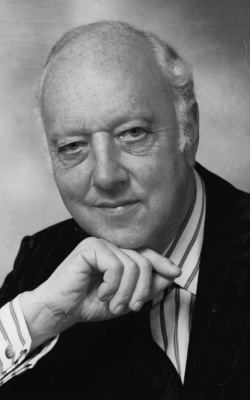
Dr John Klauber
John Klauber (1917–1981) was a highly popular and well-loved analyst who died suddenly and unexpectedly only one year into his term as President. Born in London to Hungarian parents, he had a love of classics but went to study history at Oxford University having obtained a scholarship to do so. Graduating in 1939, he served as an intelligence officer during the second world war before training in medicine and qualifying in 1951, having already started psychoanalytic training in 1948. He became an analyst with a full practice which he maintained in addition to contributing significantly to the BPAS as a training analyst and to the scientific life of the society. His attention to aspects of the analytic encounter, which became the title of his well-known book, also meant that he was a popular lecturer both in the UK and the world including France, Holland, Austria, Norway, Poland and lecturing extensively in various parts of the United States. His untimely death also occurred whilst he just as he was about to take up the post of Freud Memorial Visiting Professor of Psychoanalysis at University College London.
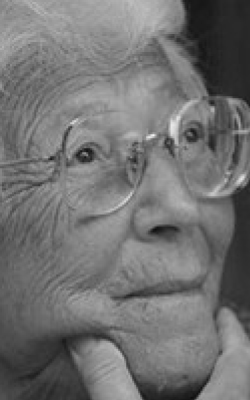
Dr Hanna Segal
Hanna Segal was one of a small group of major thinkers, along with Bion and Rosenfeld whose influence has remained central to the development of psychoanalysis and whose early work has been described as one of “pioneering optimism”.
Segal’s influence was confirmed from an unexpected quarter when it was discovered that, unbeknown to her, this quotation from her paper ‘A psychoanalytical approach to aesthetics’ was used as a rallying call for the World Trade Center Mural Project.
“It is when the world within us is destroyed, when it is dead and loveless, when our loved ones are in fragments, and we ourselves in helpless despair - it is then that we must recreate our world anew, reassemble the pieces, infuse life into dead fragments, recreate life.”
The project was set up following the terrorist attack of 11 September 2001 with the aim of creating a mural, 70 feet high, on the Equitable Building in New York as a symbol that life could survive destruction.
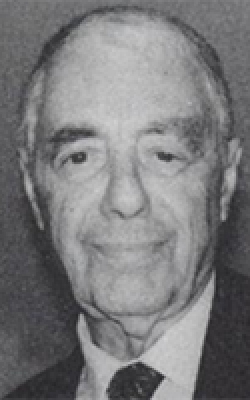
Dr Adam Limentani
Born in Rome, Adam Limentani was forced to emigrate to England in 1938. He worked as a psychiatrist before training in the 1950s within the Group of Independent Analysts. He
subsequently worked for many years at the Portman Clinic and in private practice and was the President of the British Society from 1974-1977. He later served as President of the International Psychoanalytic Association from 1983-86. He wrote widely on a range of areas including the concept of acting out and types of homosexuality, whilst always combining a critical and integrative approach and always eschewing over-simplifications. This theoretical stance was also evident in his clinical approach, in which he combined a tolerance for human conflict and suffering with a depth of understanding of the complexities of psychic life. His book: “Between Freud and Klein” (1989) emphasises his preferred clinical and theoretical position.
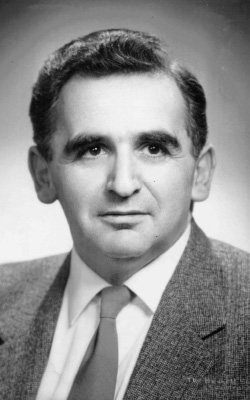
Dr Walter Joffe
Walter “Wally” Joffe (1922–1974) was a highly popular president who tragically and unexpectedly died during his tenure in office. Born in South Africa, he initially trained in medicine before developing an interest in psychoanalysis and moving to Britain in order to train at the British Psychoanalytical Society. Three years after qualifying in 1953, he returned to South Africa for family reasons where he laid the foundations psychoanalytic training there through liaison with the British Society. Returning to London in 1961, he was highly involved in the running of the BPAS and was the Director of the Clinic in 1969. This paved the way for his election as President in 1972.
He was known for his unbounded enthusiasm for all matters psychoanalytic in addition to his warmth and generosity. In addition to posts at Middlesex hospital and University College London, he was an editor for both International Journal of Psychoanalysis and for the British Journal of Medical Psychology. Always willing to collaborate, he worked with Joe Sandler on the Hampstead Index and as William Gillespie (1975) noted, Walter Joffe died just as he “was reaching the summit of a career which still held out immense promise for the future”.
photo by Boris Bennett
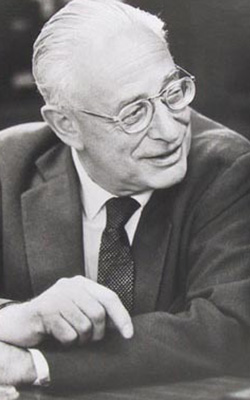
Dr Michael Balint
Michael Balint was born Bergmann Mihály in Hungary in 1896. In 1924 he commenced analysis with Ferenczi and in time became a leading authority on Ferenczi’s work. Balint’s own research culminated in his final and most important book on regression, The Basic Fault: Therapeutic Aspects of Regression (Balint, 1968). Balint’s ‘The Doctor his Patient and the Illness’ (Balint, 1957), which continues to be very influential in medical practice throughout the world, applied ‘basic fault’ theory to the interaction between doctors and their patients, as fault lines in communication with unconscious affect, allowing the unconscious dynamic of the interaction to emerge. Michael Balint died on the 31st December 1970 whilst serving as President of the British Psychoanalytical Society.
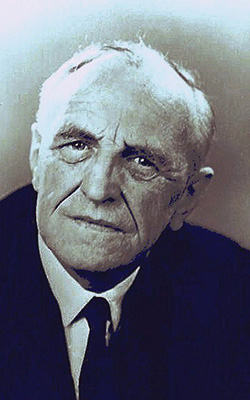
Dr Donald Winnicott
Donald Woods Winnicott was a paediatrician who was amongst the first cohort to train as a psychoanalyst in the late 1920s. His contribution to the evolution of psychoanalysis constitutes a significant shift from classical Freudian theory. From 1945 onwards, post Controversial Discussions, Winnicott’s scientific papers forge a particular psychoanalytic approach associated with the Independent Tradition (see Kohon 1989)
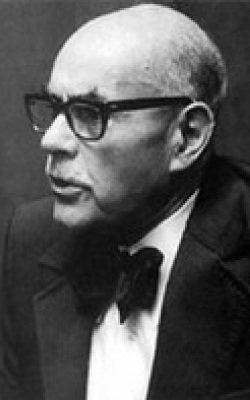
Dr Wilfred Bion
Wilfred Bion was born in northwest India and was educated at boarding school in England. He fought in France in the Tank Regiment during the First World War and was awarded the DSO (Distinguished Service Order), and, by the French Government, the Légion d'Honneur. Around 1946 Bion entered into training analysis with Melanie Klein, and he became a full Member of the British Psychoanalytical Society in 1950. Bion is best known for the work stemming from his psychoanalysis of patients in psychotic states, by building on and expanding Klein’s concepts of projective identification and the two positions, paranoid-schizoid and depressive, in dynamic equilibrium, and by introducing the notion of Container-Contained (♀ ♂); and by elaborating a theory of thinking with emotional experience at its core.
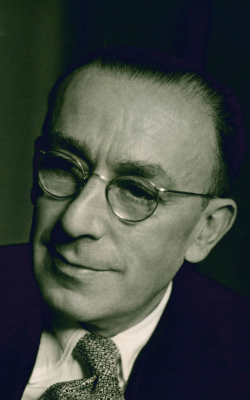
Dr Willi Hoffer
Wilhelm “Willi” Hoffer (1897-1967) was born in Austria and completed a PhD on education before training in medicine. A member of the Viennese Psychoanalytical Society he worked very closely with Anna Freud, also arriving in London in 1938. He was a consultant Psychotherapist at the Maudsley Hospital, Editor in Chief of the International Journal of Psychoanalysis and then President of the British Psychoanalytical Society. Amongst many other honours, he was also Honorary Vice-President for life of the International Psychoanalytical Association.
Willi Hoffer was known for his observational skills and his interest in child analysis was noted by Anna Freud who in 1968 emphasized his "unique role in laying the foundations for a sound and well-planned approach to the study of children of all ages"

Dr Donald Winnicott
Donald Woods Winnicott was a paediatrician who was amongst the first cohort to train as a psychoanalyst in the late 1920s. His contribution to the evolution of psychoanalysis constitutes a significant shift from classical Freudian theory. From 1945 onwards, post Controversial Discussions, Winnicott’s scientific papers forge a particular psychoanalytic approach associated with the Independent Tradition (see Kohon 1989)
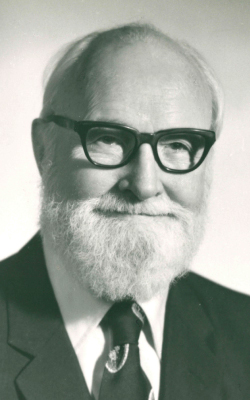
Dr W Clifford M Scott
W. Clifford Scott (1903-1997) was born in Ontario Canada and whilst very keen on science was strongly encouraged to study medicine as a guarantee for making a living. After qualifying, which included a break to complete an intercalated BSc specializing in genetics, he became interested in psychiatry and consequently gained experience in Toronto, New York and Baltimore simultaneously encountering psychoanalytic ideas. He consequently travelled to London where, accepted for training by Ernest Jones, he was Melanie Klein’s first candidate to qualify. Posts at the Maudsley Hospital and later at the Cassel Hospital, in addition to working with the Emergency Medical Service during the second world helped develop the understanding between deep-seated and long-term conflicts and the more contemporary ones that led to the presenting problems.
W. Clifford Scott was highly active in the British Psychoanalytical Society, sitting on the Training Committee, being Director of the Institute Clinic and then also becoming president in 1953. His tenure was cut short through the opportunity to return to Canada where he was instrumental in the formation of the Canadian Psychoanalytical Society, of which he became the first President, and to the development of a training organisation for psychoanalysts in Canada. This continues to flourish.
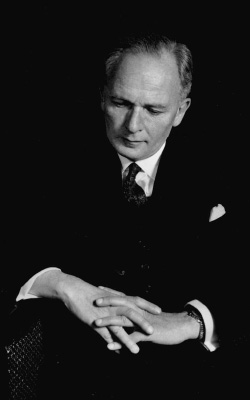
Dr William Gillespie
William Gillespie (1905 – 2001) was born in China to missionary parents and was eventually grew up in China, England, Northern Ireland and Scotland where he completed his medical training. Following a scholarship funded visit to Vienna University to learn more about psychoanalysis, he returned to London determined to train and did just that with Ella Sharpe as his analyst and qualifying in 1937. His air of quiet authority and fair mindedness meant that during the Controversial Discussions he was trusted by all sides of the debate and at the age of 45, in 1950, was elected as the youngest ever president of the British Psychoanalytical Society. This was followed by his election as president of the International Psychoanalytical Association in 1957 during which he made several important revisions to its statutes. His theoretical interests in the psychopathology of sexual perversions, the relationship with aggression and the superego led to many papers and lectures, the most well known being collected in his volume entitled Life, Sex And Death (1995).
Photo by Lotte Meitner Graf
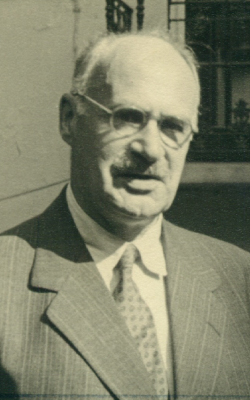
Dr John Rickman
John Rickman (1891 – 1951) had the good fortune to have had analysis with Sigmund Freud, Sandor Ferenczi, and Melanie Klein. His life was marked by his work with the under-privileged from working in the Samara Oblast province of South Russia in 1916 amid intense poverty and teaching workers how to nurse typhoid patients during an epidemic, to working as an army psychiatrist and psychoanalyst with traumatised solders during the second world war. His work attracted great interest including that of a young Wilfred Bion who initiated his work with groups at Northfield Military Hospital near Birmingham with Rickman’s backing.
Rickman played an important part in the development of the British Psychoanalytic Society and its links with the Tavistock Clinic. He was the editor of the British Journal of Medical Psychology from 1935 to 1949 and died prematurely a year following the end of his presidency of the British Psychoanalytical Society.
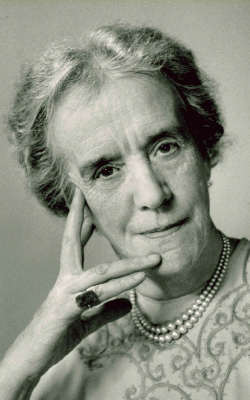
Mrs Sylvia Payne
Sylvia May Payne CBE (1880 – 1976) was a pioneer of psychoanalysis having originally trained at the London School of Medicine for Women, later becoming the Royal Free Hospital, and qualified in 1906. She was awarded Commander of the Order of the British Empire for her work as a medical officer in the first world war, the experience of which also evoked her interest in psychoanalysis. After an initial analysis with Edward Glover, she travelled to Berlin and underwent analysis with Hans Sachs. Qualifying as a psychoanalyst with the British Society in 1922 she became a strong advocate for psychoanalysis and played a very significant part in the controversial discussions between 1941 and 1945, being trusted by all parties and also managing pragmatics including organisng a stenographer to produce highly accurate records so that no member would miss the discussions. Elected president in 1944 she emerged as a leading member of the Independent Group and was elected president again in 1954 following the sudden departure of Clifford Scott.
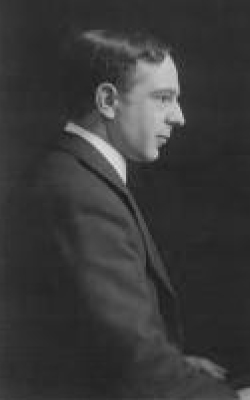
Dr Ernest Jones
Alfred Ernest Jones was born in 1879, in Gowerton, Wales, and studied at Cardiff University and UCL. He established both the British Psychoanalytical Society and the American Psychoanalytic Association, wrote a three-volume biography of Sigmund Freud, and played a key role in helping Sigmund and Anna Freud escape Nazi Austria, as well as numerous other continental analysts.

Dr Ernest Jones
As President of the London Psychoanalytic Society

